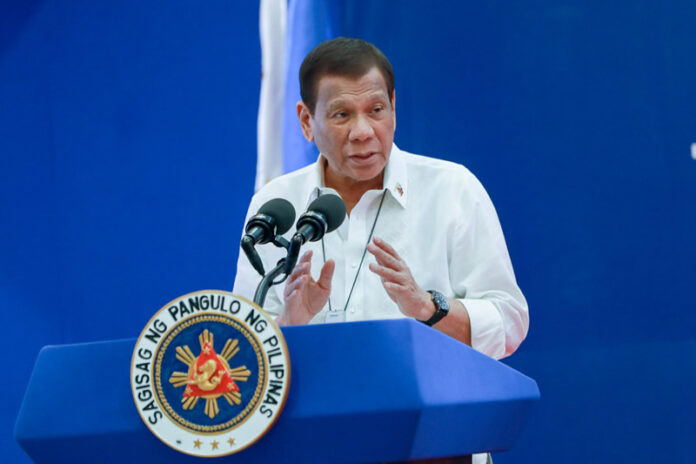As Philippine Showbiz Today went to press, COVID-19 cases in the Philippines have surged to 72,269.
The number was reached on July 22 after the country’s Department of Health (DOH) reported 1,594 new cases on that day.
The DOH also said that the number of recoveries further rose to 23,623 after 342 more patients have survived the disease.
A total of 46,803 cases are active as of July 22.
There have been a total of 1,843 people who have died from COVID-19.
The Philippine government announced on July 21 that it would ramp up testing for the novel coronavirus.
The move was in response to the sharp rise in infections and deaths since a lockdown was eased in June.
Meanwhile, President Rodrigo Duterte threatened to arrest anyone not wearing a mask.
The government aims to test 32,000 to 40,000 people a day compared with the current 20,000 to 23,000, Health Secretary Francisco Duque said in a televised meeting with Duterte.
The Philippines has tested nearly 1.1 million people so far.
But Duque said the aim was for 10 million people — or nearly a tenth of the population — to be tested by the second quarter of next year.
“We cannot test every citizen as no country has done it even the richest, the United States,” Duque said.
In Southeast Asia, the Philippines ranks second to Indonesia in terms of the number of infections and deaths.
Duterte warned in April that violators of lockdown rules could be shot for causing trouble.
“We do not have any qualms in arresting people,” Duterte said in a recorded address aired on July 21.
It was a “serious crime” to spread the COVID-19 respiratory disease, Duterte added.
“If you are brought to the police station and detained there, that would give you a lesson for all time,” he said of anyone caught not wearing a mask.
Previously, officials said health workers and police would take patients with mild or no symptoms from their homes and place them in isolation centers, raising concerns about possible human rights violations.
Metro Manila may return to more stringent community quarantine after July 31 if the number of cases continues to rise, Malacañang said on July 22.
Palace spokesman Harry Roque Jr. raised the possibility of placing Metro Manila under modified enhanced community quarantine (MECQ) or to a more stricter community quarantine as the general community quarantine (GCQ) nears its end.
“Yes, a reversion to MECQ or a more stringent quarantine is possible,” Roque said.
Duterte initially wanted to place Metro Manila under MECQ but decided to retain the GCQ classification in the area.
“So the President agreed not to put Metro Manila again under MECQ for the next two weeks,” Roque earlier said. “But it was clear from the discussion that the spread of Covid in Metro Manila has not slowed down. It’s possible that it will return to MECQ after two weeks.”
“That’s a distinct possibility, although it’s a possibility that I wish would not happen because we all know that while we have to contain the disease, we also need to restart our livelihoods,” he said.
Roque admitted that a stricter quarantine classification could lead to an economic recession.
“We’ve come to a very crucial point where I think the economy can no longer afford to be shut down anew. But if we have to and there’s no alternative, we need to do it,” he said.



